strategic teaching and reaching
Empowering the next generation of leaders to thrive in the classroom, workplace, and beyond
Providing the tools to ensure that emerging leaders have the communication and conflict-resolution skills needed to excel in life and career.
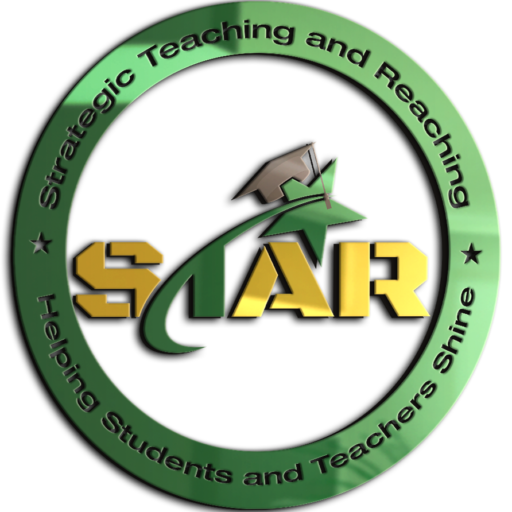

At Strategic Teaching and Reaching (STAR), we’re passionate about supporting emerging leaders and the organizations that serve them.
Through customized workshops and training programs for businesses, academic institutions, and agencies, we empower organizations to create environments where emerging leaders can thrive. By equipping young leaders with the tools to communicate, collaborate, and resolve conflicts effectively, we help our clients achieve measurable career and business success.
Certified Professional Coach
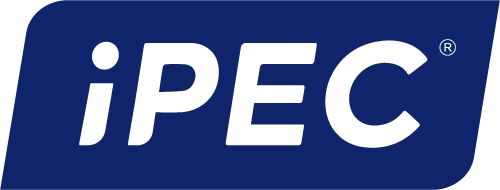
Certified Trainer in Restorative Practices

Certificate in Dialogue for Change

Do you face challenges with high turnover and preparing early-career professionals for success in the classroom and workplace? Strategic Teaching and Reaching, LLC equips educators and employers with the tools to build inclusive, skilled teams through targeted training in communication, collaboration, and cultural responsiveness. The result? Increased productivity, employee satisfaction, and student engagement—without the costly setbacks of disengagement and ineffective preparation.
Why Choose Us?
Strategic Teaching and Reaching, LLC provides customized, effective training that prepares young leaders and entry-level employees for workplace success, helping organizations improve performance while contributing to a stronger, more skilled workforce.
Empowering the Next Generation to Thrive…
Our targeted approach helps our clients:
- Streamline Workforce Readiness: Equip students with skills employers value, such as communication, teamwork, and problem-solving.
- Reduce Turnover Costs: Build inclusive, supportive environments that foster employee retention.
- Elevate Community Reputation: Position your organization as innovative and socially responsible, enhancing its appeal to customers, employees, and stakeholders.
With STAR, your institution benefits from training that delivers results: improved retention, stronger relationships, and leaders ready to thrive in dynamic environments.
Transforming Lives, One Leader at a Time
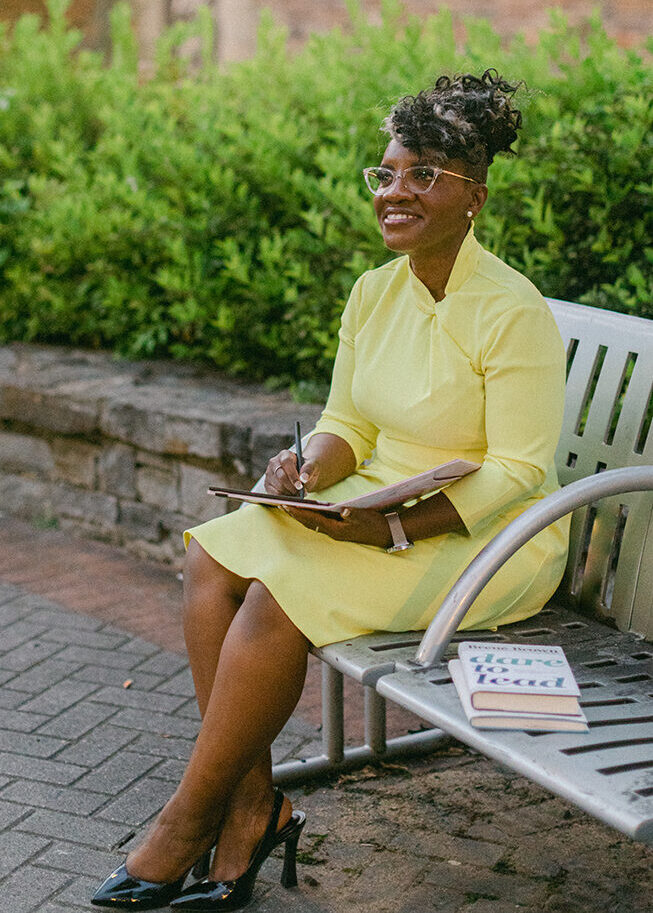
Dr. Andrea Dardello founded STAR, LLC with a deep commitment to improving student outcomes. Growing up in West Point, Mississippi, she overcame significant challenges through the power of education. Her career as a community college educator revealed a critical gap: the traditional classroom approach wasn’t fully addressing students’ real-world needs.
After a transformational sabbatical, Andrea redefined her mission. She shifted her focus to teaching the “whole student,” emphasizing skills that prepare them not only for academic success but also for life’s challenges. Today, STAR, LLC empowers young leaders and strengthens communities by fostering the confidence and resilience needed to thrive.
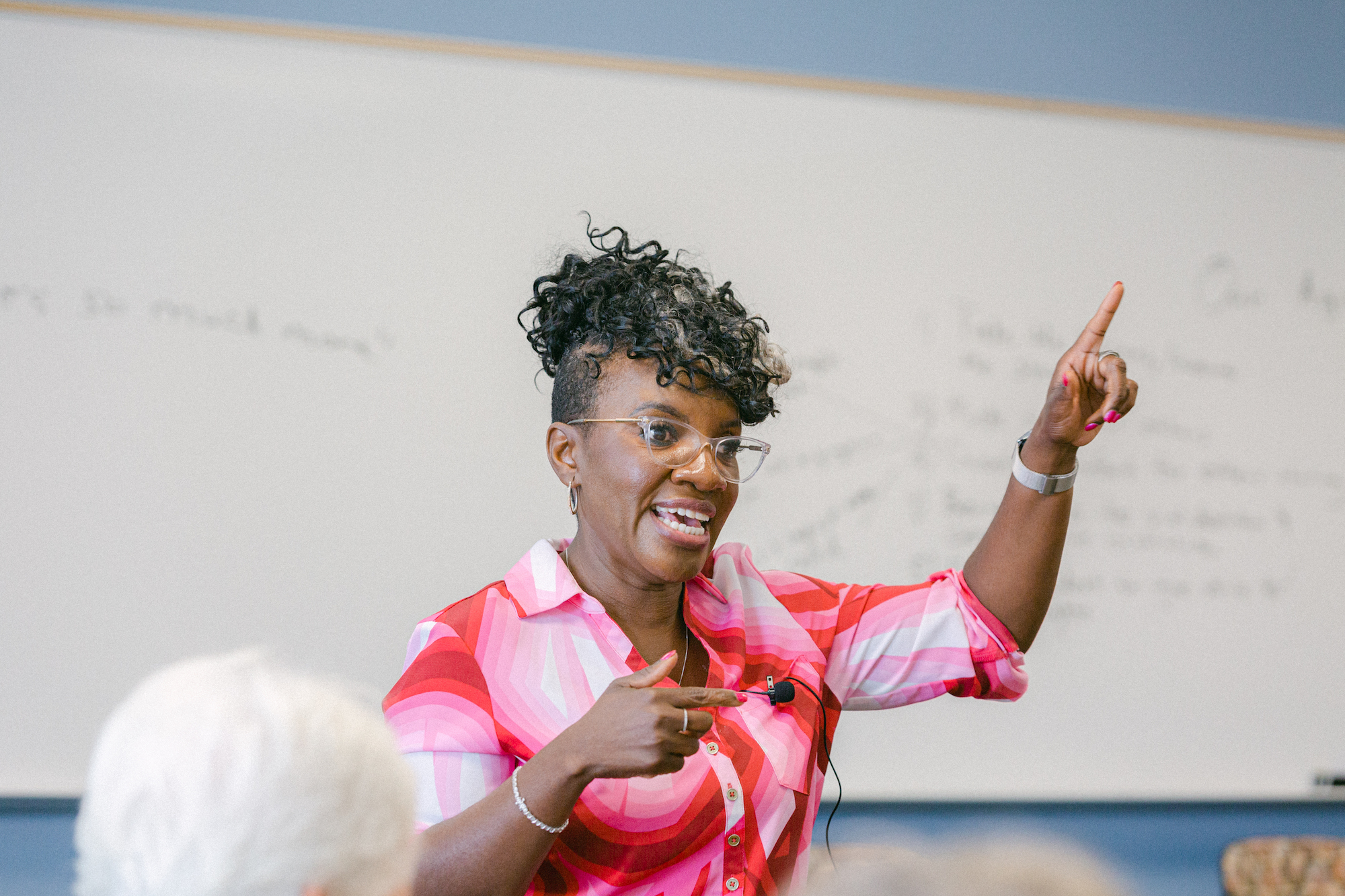
keeping connection at the core...
STAR provides customized training solutions that equip businesses, academic institutions, and agencies with the tools to effectively support emerging leaders. By focusing on essential skills such as communication, conflict resolution, and cultural responsiveness, our services help organizations foster confident, collaborative, and productive leadership, improving retention, performance, and workplace harmony.
We offer trainings in the following areas
Cultural responsiveness
Communication skills
Conflict resolution
Confidence-building
Feedback skills
Presentation skills
Listening skills
Teamwork skills
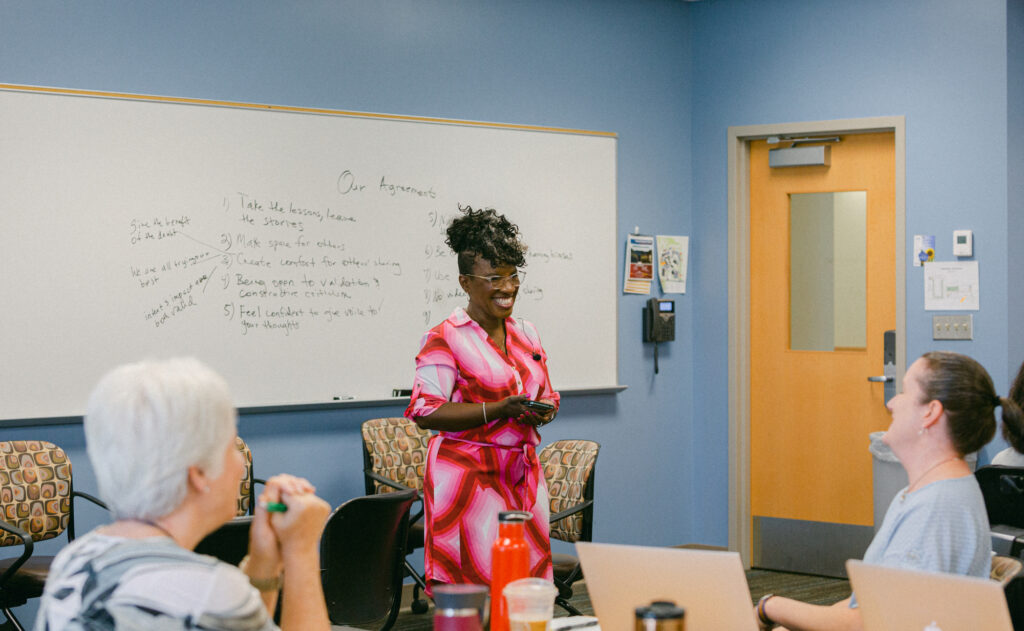
SERVICES
Transformative Skills for a Thriving Workforce
Ready to transform your team and cultivate the leaders of tomorrow? Strategic Teaching and Reaching is proud to offer our Signature 3-Hour Dialogue Training Session, designed to equip emerging youth and teams with the tools they need to communicate, collaborate, and thrive.
Discover the Difference Between Dialogue and Debate
Learn the difference between dialogue and debate and how dialogue can be used to foster understanding, collaboration, and trust, enabling teams to navigate conflicts, generate innovative solutions, and build stronger relationships.
Engage in Real-World Case Studies and Role Play
Practice applying generous listening and effective communication in scenarios that reflect real workplace and classroom challenges.
Develop Transformative Skills
Walk away with practical tools to help you navigate conflicts, foster mutual respect, and strengthen team dynamics.
Our interactive, hands-on training not only enhances communication but also empowers participants to create environments of inclusion, trust, and productivity.
Take the First Step Toward Building Stronger Leaders
Whether you’re a business, academic institution, or agency, this session is the perfect way to invest in the skills that matter most for success.
Training for academic institutions and organizations include:
- Foundational Awareness – Facilitating discussions that broaden understandings of identity and culture and their impact in the workplace
- Addressing Imposter Syndrome – Identifying what imposter syndrome is, common triggers, and ways to combat it.
- Communication Skills – Engaging in activities and case studies to distinguish between dialogue and debate, with opportunities to practice effective dialogue techniques
- Conflict Resolution and Prevention – Using de-escalation techniques to address conflicts and collaboratively reach respectful solutions
- Confidence-Building –Identifying and highlighting strengths to develop a personal brand pitch and presenting it
- Presentation Skills – Developing and practicing personal brand pitches in front of peers and receiving constructive feedback
- Feedback Skills – Practicing strategies for providing constructive feedback by affirming, instructing, and directing
- Listening Skills – Practicing strategies for generous listening: asking questions, perspective-taking, mirroring, affirming, adding value
- Teamwork Skills – Engaging in exercises that build and strengthen relationships and trust
Training for employers who hire emerging youth leaders (16-25) include:
- Cultural Competence – Leveraging difference to collaborate, innovate, and create in alignment with company mission and values
- Overcoming Imposter Syndrome – Identifying what imposter syndrome is, common triggers, and ways to combat it
- Communication Skills – Helping team members distinguish between dialogue and debate providing role-play solutions
- Conflict Prevention and Resolution – Providing tools and frameworks for responding to and resolving conflict based on workplace policies
- Team-Building – Engaging team members in exercises to build and strengthen relationships and trust
- Emotional Intelligence –Providing strategies for identifying, understanding, managing, and responding to verbal and non-verbal cues
What Our Clients Are Saying...




Contact us today to schedule your session and experience the STAR difference! Let’s build a brighter, more collaborative future—together.

- andrea@strategicteachingandreaching.com
- (410) 300-3570
- M-F 9:00am-5:00pm